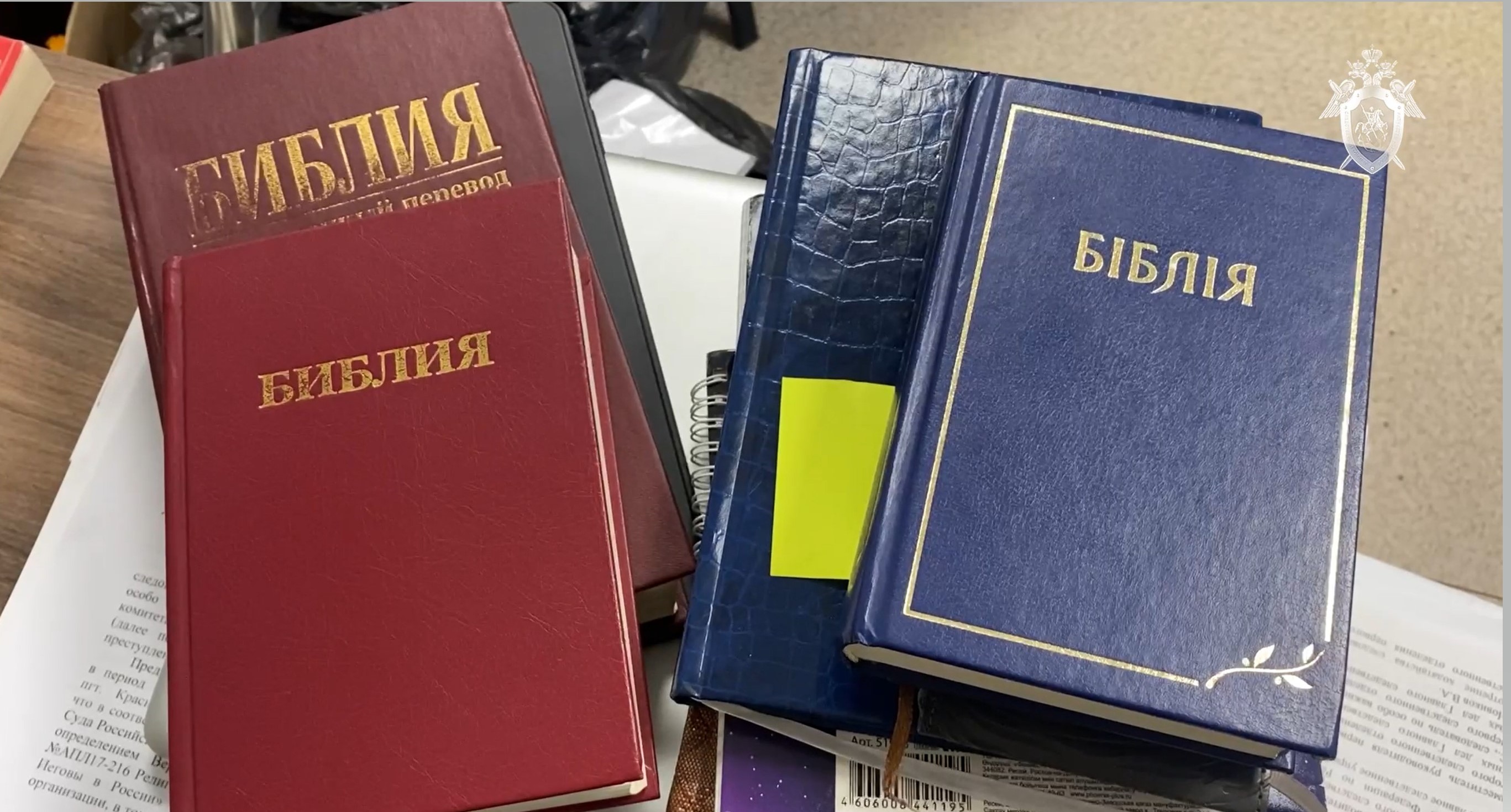Ukrainian Jehovah’s Witness faces 10-year sentence for studying the Bible in Russian-occupied Crimea

A second criminal charge has been laid against 53-year-old Dmytro Naukhatsky in Russian-occupied Crimea, with the Jehovah’s Witness now facing up to ten years imprisonment solely for practising his faith. If in Russia, such prosecutions for religious faith can end in suspended sentences, in occupied Crimea the ‘trials’ are virtually guaranteed to end in a real term of imprisonment.
Naukhatsky has been under house arrest since December 2022, when he was arrested after the FSB carried out mass armed raids of around 20 homes of believers in Simferopol. He was initially charged with ‘organizing the activities of an extremist organization’ (under Article 282.2 § 1 of Russia’s criminal code). Then on 24 March, the Russian Investigative Committee announced that the 53-year-old was also facing a charge of ‘financing the activities of an extremist organization’ (Article 282.3 § 1).
Russia reverted to Soviet persecution of Jehovah’s Witnesses well over a decade ago. It is now using a gravely flawed Supreme Court ruling from 20 April 2017 to imprison believers, by claiming that the Russian branch of a world faith practised by millions is an ‘extremist organization’. The headlines are much better and enable the Russian authorities to claim, however implausibly, that they are not violating the Russian constitution’s guarantee of freedom of conscience, but are ‘fighting extremism’. In reporting Naukhatsky’s arrest on 22 December 2022, the Russian state-controlled RIA Novosti could thus claim that “the organizer of an extremist cell was detained in Crimea”. Citing the occupation Investigative Committee, RIA Novosti speaks only of “a 53-year-old unemployed resident of Simferopol”. He is accused of having, “organized propaganda meetings and run them by video link. Participants, under his leadership studied and discussed literature prohibited in Russia and means of circulating it. The man also collected donations to support the activities of the religious organization.”
Take away words linked with Russian repression, and you are left with a realistic description of Jehovah’s Witnesses’ study of the Bible and their activities in trying to ‘spread the Word’ to others. In the video of the searches of believers’ homes, it is the Bible that the camera focuses on.
During around 20 armed searches of believers’ homes, “a large amount of religious literature with elements of extremist content were removed, together with computer technology, documentation and financial registers, testifying to the unlawful activities of the Simferopol cell and the collection of donations for its maintenance, and money.”
This is the second prosecution in which Russia has used donations or similar to add the additional charge of ‘financing extremist activities’ under Article 282.3. On 27 February 2023, ‘judge’ Volodymyr Romanenko from the occupation ‘Yalta municipal court’ sentenced Taras Kuzio (b. 1978) to 6.5 years’ imprisonment and Petro Zhiltsov (b. 1987) to 6.1 years on identical charges to those which Naukhatsky is now facing. This was presumably still a ‘test run’, with the rather illogical fact that Zhiltsov received the same sentence as Serhiy Liulin (b. 1984), although the latter was accused only of ‘organizing’ the activities of a Jehovah’s Witness community (more details here).
It does, unfortunately, seem likely that the additional charge against Naukhatsky will make the sentence even harsher/ It is also possible that the new charge will become a fixture of such persecution, enabling the ‘investigators’ to claim ‘success in prosecutions’ under yet another article of Russia’s criminal code.
The Jehovah’s Witnesses’ website reported on 12 December 2022 that mass raids by the FSB had been carried out at the beginning of December, with around 40 people the victims of such ‘investigative measures’. A search of one young man in Feodosia was carried out on 6 December, with FSB Border Guard Service officer Roman Lebedev removing a smartphone and three flash drives. The search warrant was issued by ‘judge’ Alla Khinevych of the occupation ‘Crimea high court’.
On 8 December, searches were carried out in the homes of at least 16 believers in the Simferopol district.
Although Naukhatsky’s arrest was only reported in the second half of December, the criminal prosecution against Naukhatsky appears to have been initiated by ‘investigator’ V.A. Novikov back in November 2022, with the detention coming on 8 December. On that same day, Magomed Magomedov summoned 57-year-old Oleksandr Voronchikhin who was interrogated, but released after many hours, having been forced only to sign an undertaking not to leave the city. Voronchikhin is also accused of “organizing the activities of an extremist organization for the holding of religious services” (under Article 282.2 § 1) but is described as “a suspect”, in contrast to Naukhatsky, who is referred to as “accused”.
This is evident religious persecution, and all those ‘investigators’, prosecutors, ‘judges’ and others implicated in it should be at least subjected to international sanctions.
See also:
'Court' in Russian-occupied Crimea passes long sentences against three Ukrainian Jehovah’s Witnesses





